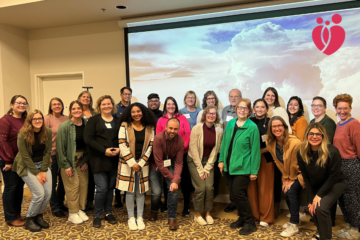Working together to improve the health of Oregon Latinx
See original post from The Moore Institute here
The rapid rise of obesity and diabetes has been especially evident among Oregon Latinx communities. Latin American immigrants who arrived a generation or two ago were raised on traditional diets of beans, vegetables and grains. As their children and grandchildren transitioned to a “westernized” diet high in salt, sugar and fat and lacking in nutrients, rates of chronic disease began to rise.
 Numbers of Oregon Latinx have doubled since 2000, now accounting for about 12 percent of the population. They have the highest rates of obesity among Oregon racial and ethnic groups with 40 percent of Latinx children either overweight or obese. Diabetes rates among Oregon Latinx have doubled since 1988, and they represent the highest rates of gestational diabetes among Oregon racial and ethnic groups.
Numbers of Oregon Latinx have doubled since 2000, now accounting for about 12 percent of the population. They have the highest rates of obesity among Oregon racial and ethnic groups with 40 percent of Latinx children either overweight or obese. Diabetes rates among Oregon Latinx have doubled since 1988, and they represent the highest rates of gestational diabetes among Oregon racial and ethnic groups.
From its inception, the Moore Institute found a receptive audience within the Latinx community for its message about the role of early life nutrition in establishing risk of lifelong chronic disease. Along the way we developed a working relationship with Familias en Acción that has blossomed over the years.
Now, Familias en Acción (Familias) is creating a culturally-specific nutrition curriculum grounded in the science of the Developmental Origins of Health and Disease (DOHaD) in conjunction with the Moore Institute. DOHaD research has demonstrated the lifelong impact of good nutrition during the first 1,000 days, from conception to about age two, in preventing chronic disease risk. Poor prenatal nutrition increases risk of developing chronic diseases like obesity, diabetes and heart disease in offspring as they become adults;and yet, Latinas in Oregon receive less prenatal care than non-Hispanic white women.
The plan is to develop a research-based, culturally and linguistically specific curriculum to build Latinx community knowledge and advocacy skills about food justice and family health. The project focuses on nutrition as a foundation for strengthening the health of Latino families and communities.
The Abuela Mama y Yo (AMY) curriculum differs from traditional nutritional programs because it addresses the root causes of health inequities. The curriculum will enhance knowledge of the role of the community environment in the availability of appropriate nutrition and level of social stress experienced prior to and during pregnancy. Participants will build their knowledge about the health impacts of poverty, racial discrimination, social disadvantages, and overall toxic stress on themselves and their children. Self-advocacy skills in food justice will build self-sufficiency for participants.
Once the curriculum is finalized, the second phase of the program will train 50 community leaders to conduct classes in the curriculum with a goal of reaching 350 Latinx individuals during the second year.
The Moore Institute understands that creating a healthier Oregon for all requires more work and commitment than any one group could do on its own. Working together with other similarly-missioned organizations like Familias en Acción, we can all reach our goals faster.
